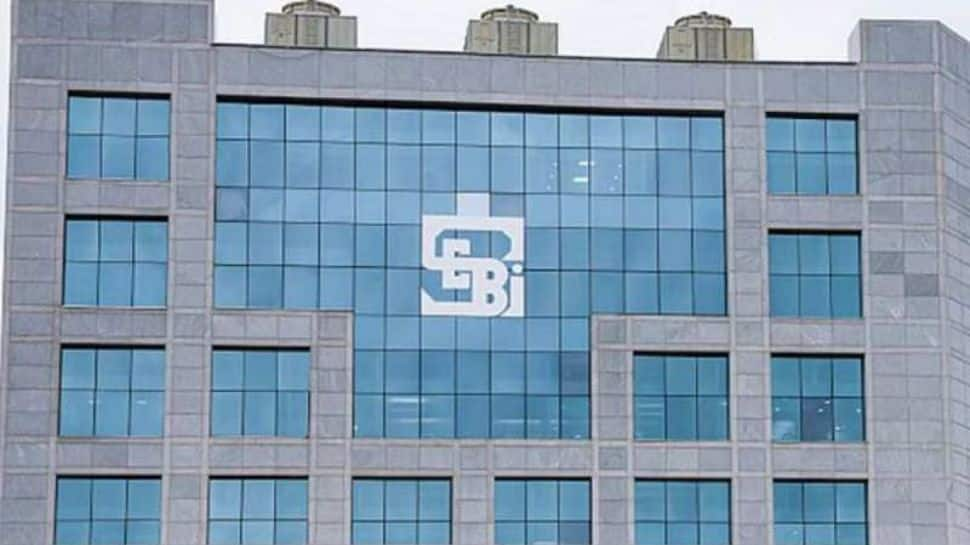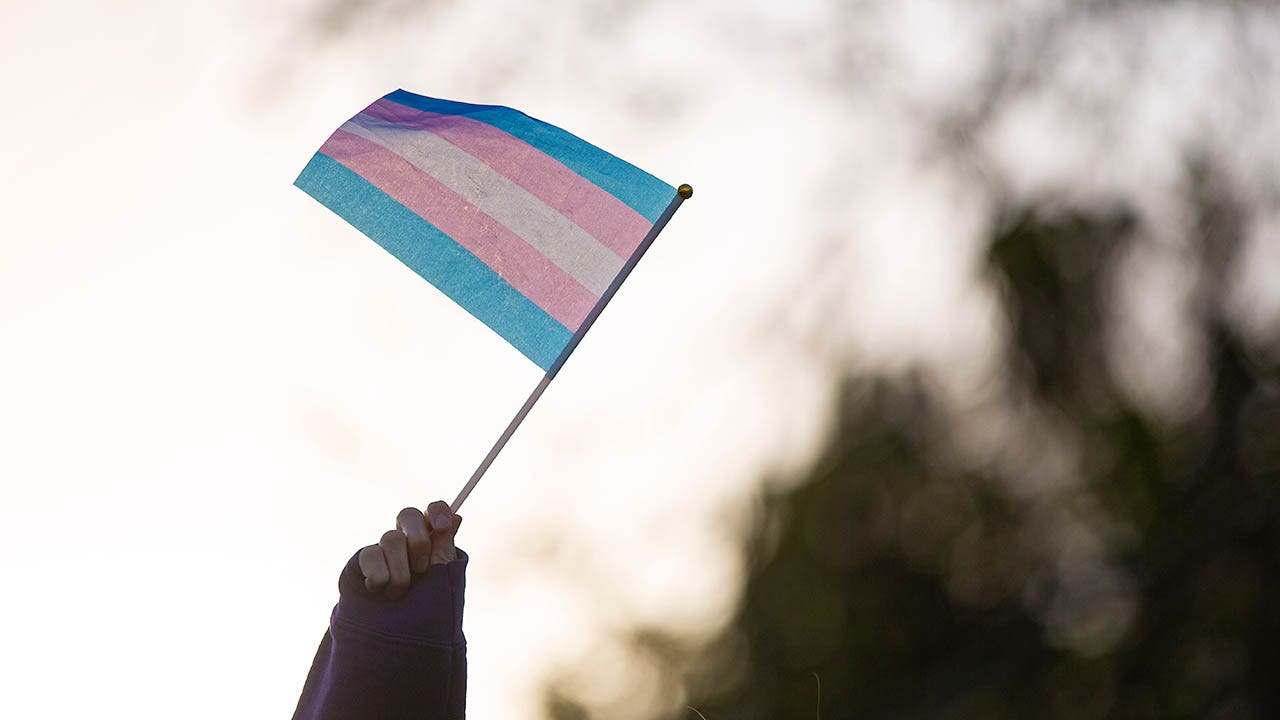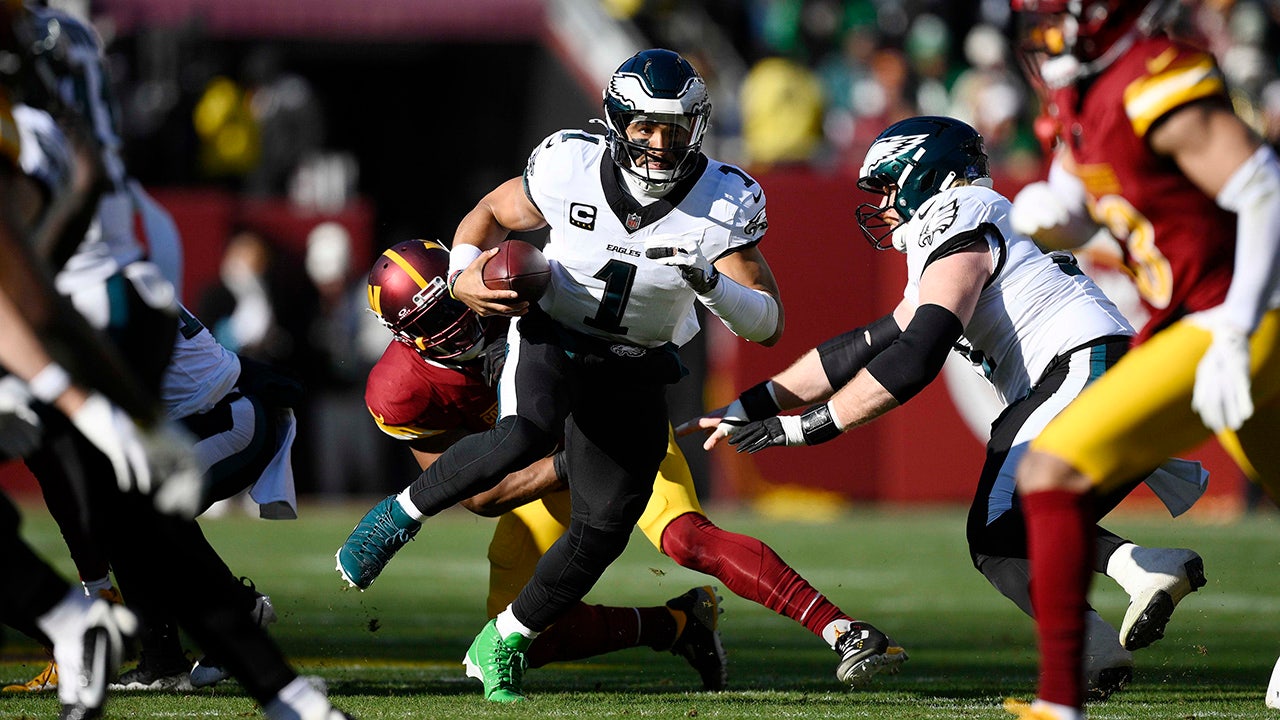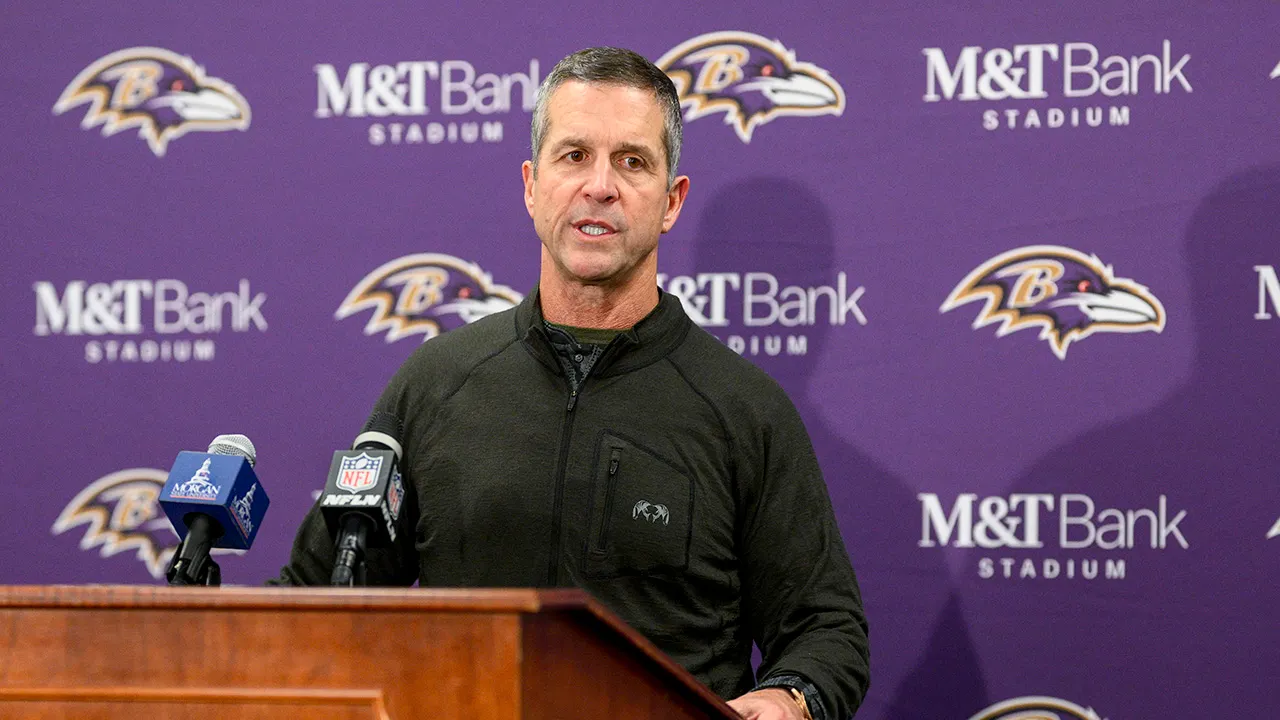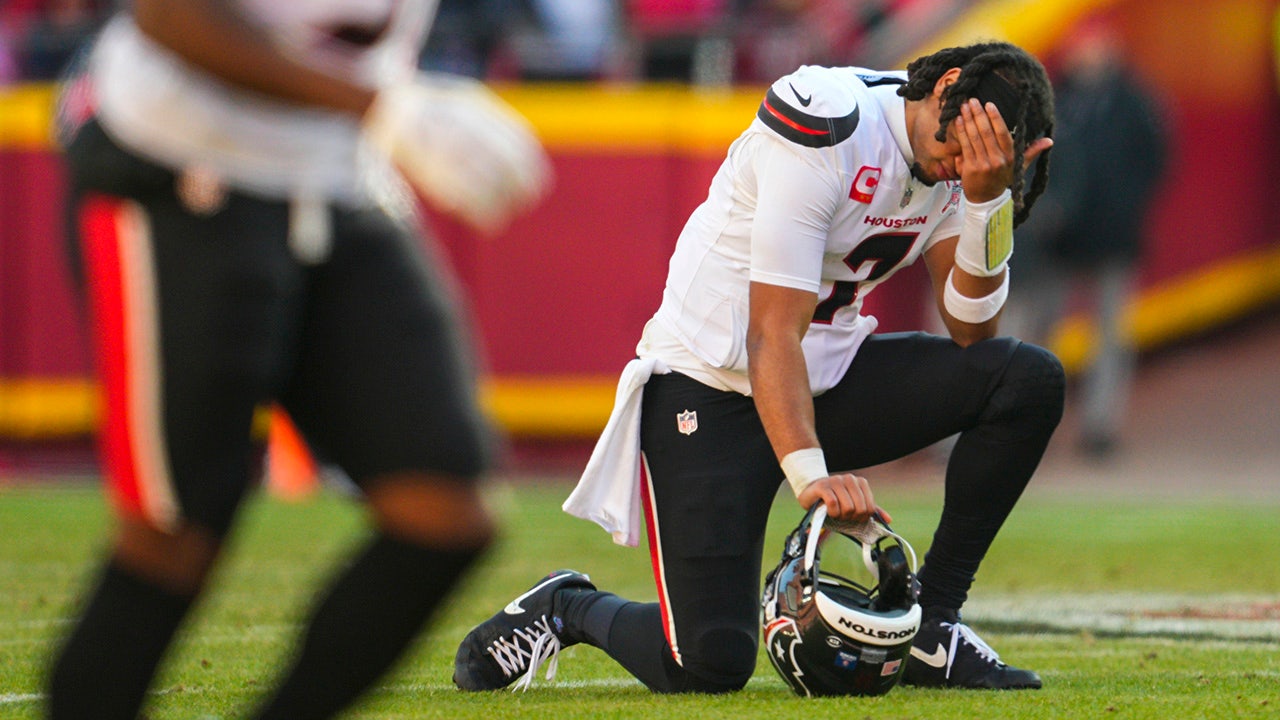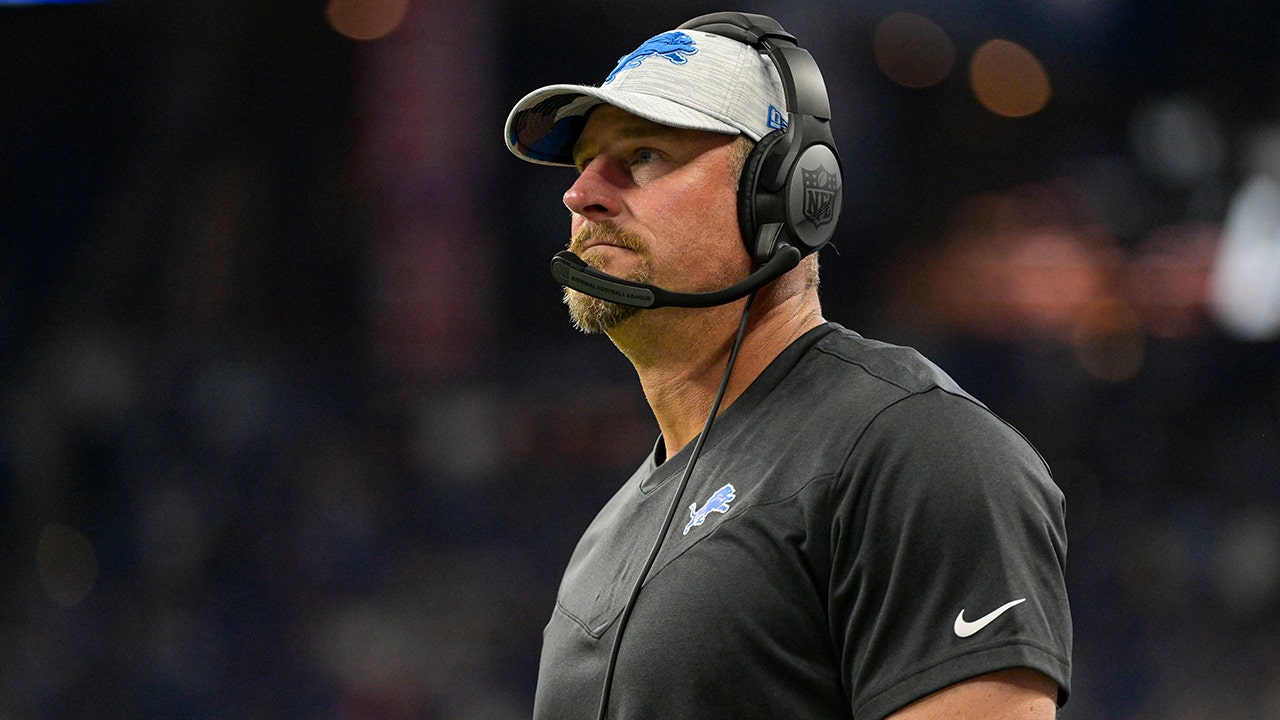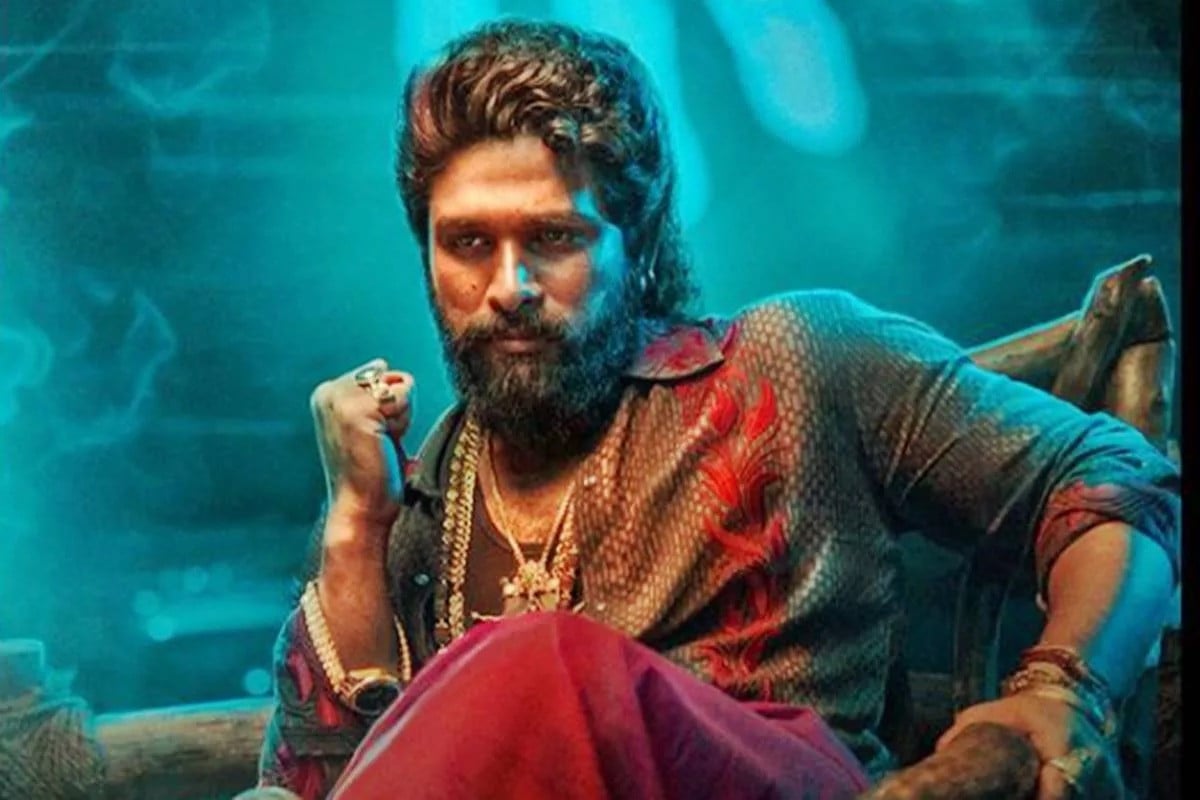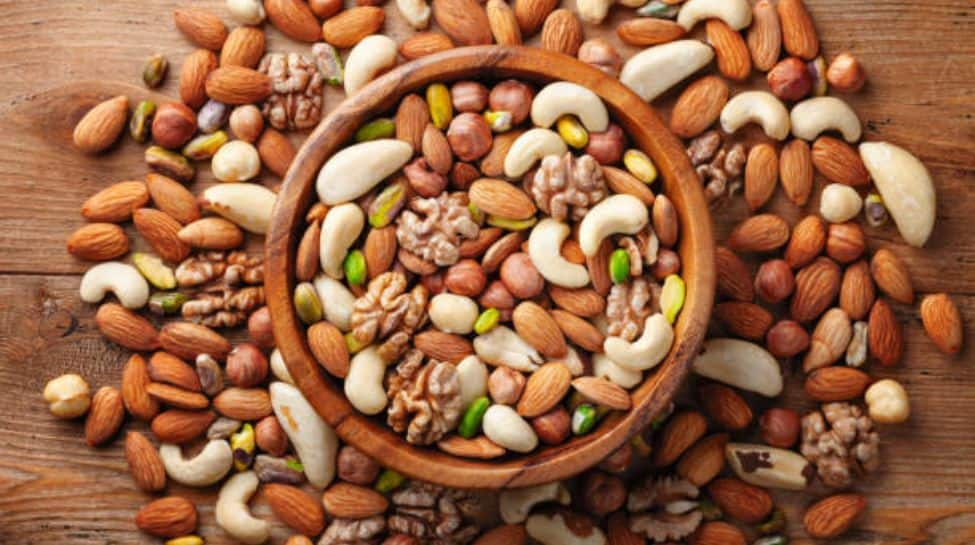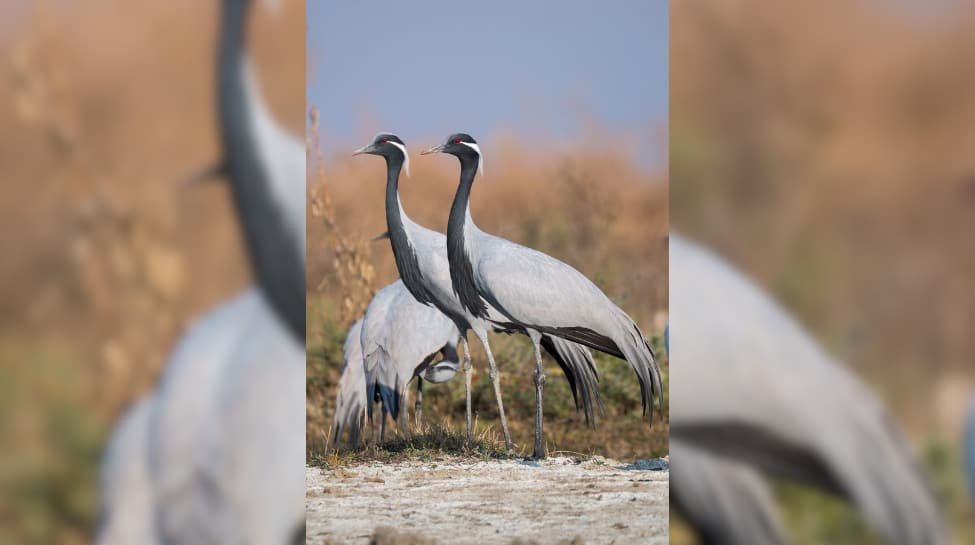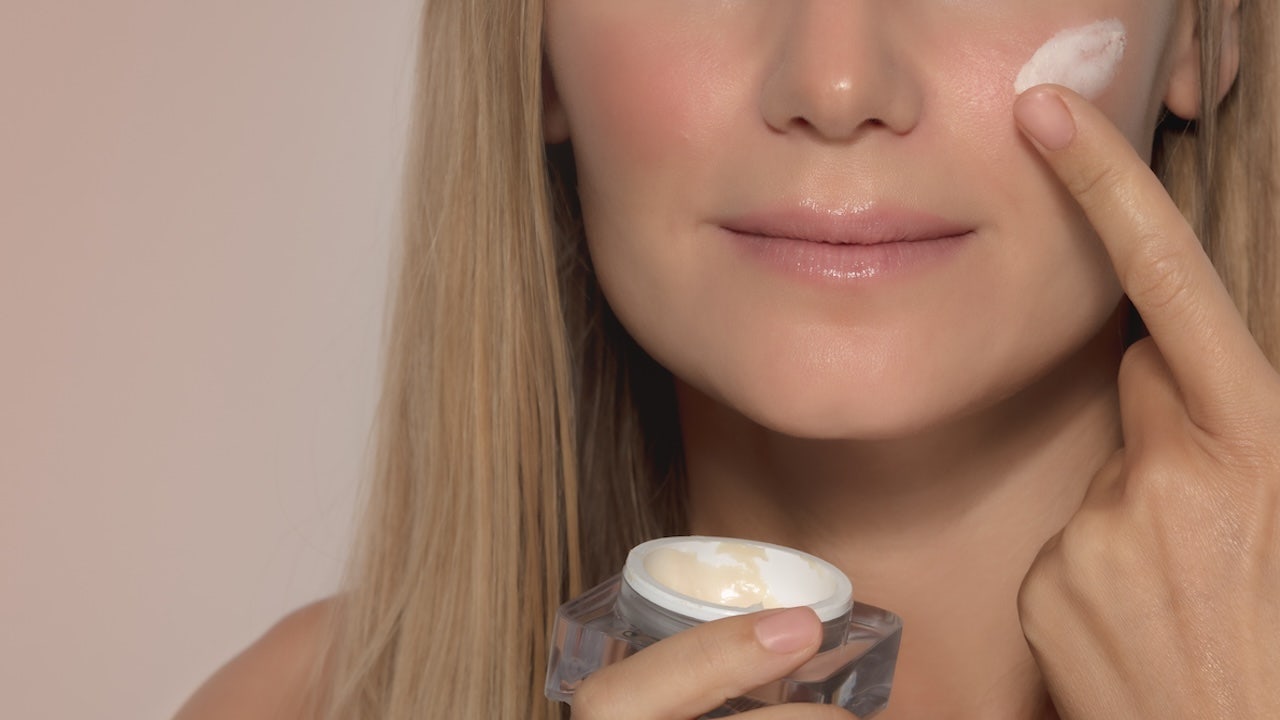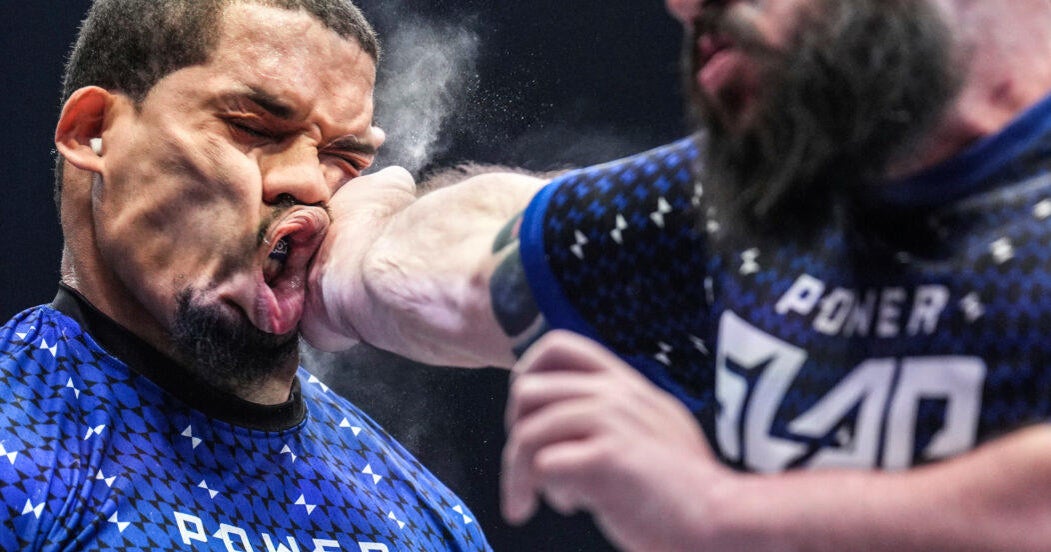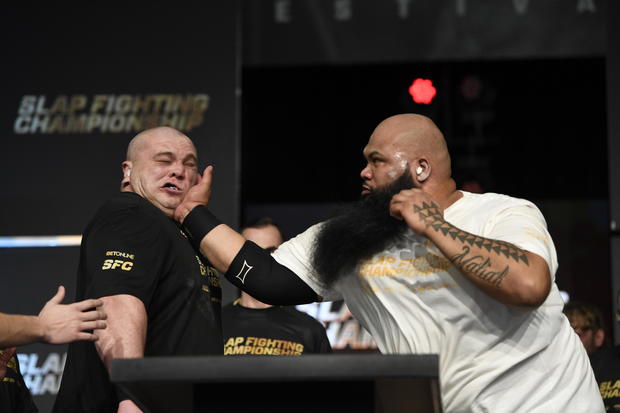Cornhole tossing and pickleball have both matured into organized, professional sports in recent years. But another emerging competition trying to horn in on the action asks participants to demonstrate an altogether different kind of skill: the ability to slap someone silly.
Slap fighting is a one-on-one competition in which opponents strike each other in the face until someone submits or is knocked out. Although competitors have held unregulated matches in small venues for years, the contests received a major stamp of approval in October when the Nevada Athletic Commission sanctioned it as a sport.
Slap fighting got even more exposure earlier this year when Warner Bros. Discovery cable station TBS began televising matches on a show called “Power Slap.” Nevada athletic officials have also approved UFC President Dana White as lead promoter for the Power Slap League, which launched in January.
“There was just something about it I liked, and I love the challenge of it,” White told the Associated Press this week. “I love taking something and turning it into a big brand.”
Growing fanbase
Slap fights last for three to five rounds. A striker has 60 seconds to recover from a hit, and they earn points based on how hard the slap lands. The Power Slap League has more than 30 competitors, also known as “strikers,” with winners collecting $2,000 to $10,000 per match.
Some of the league’s biggest stars include Darius “The Destroyer” Mata-Varona of Missouri; Christapher “Ko Chris” Thomas of North Dakota; Vernon “The Mechanic” Cathey of Kansas; and Mike “Slap Jesus” Smith of California. White described the strikers as regular guys and family men who just love to compete.
Chris Unger/Zuffa via AP
Slap fighting has a growing fanbase on social media, particularly in Europe where videos of matches have garnered millions of views on YouTube and Instagram. On TV, TBS averaged about 275,000 viewers for the first four episodes of Power Slap, in which some competitors showed signs of concussions.
Indeed, the brutal nature of the sport prompted the Nevada Athletic Commission last month to institute stricter rules for slap fighting. Competitors must use open-handed blows and can’t strike an opponent below the chin, commissioners ruled. A competitor will be disqualified if any slap violates the rule, while slaps are also subject to video review by an official.
Power Slap President Frank Lamicella told commissioners last month there have been “no major injuries” among the 25 approved matches held to date. White has said that league officials have safety in mind when preparing for a match.
“We make sure we have two healthy athletes that are going to compete on Saturday night,” White told the AP. “We have the proper medical attention there during the fight and they (the competitors) get the proper medical attention after the fight.”
“There is no sport”
Such assurances haven’t assuaged the Brain Injury Association of America (BIAA), which in February asked the Nevada Athletic Commission to consider suspending slap fighting.
“By the nature of this event’s rules, which stipulate that participants are not allowed to defend incoming blows, you are allowing a situation where participants are repeatedly concussed for entertainment. There is no sport here,” the group said in a letter.
“Regardless of procedures in place to prevent concussions after the fact, many in the medical community have raised questions about how this sport was ever approved by your commission,” BIAA added.
Stephen Cloobeck, who chaired the Nevada commission when it sanctioned slap fighting last fall, told the AP that he regrets approving the sport. “I made a mistake,” he said. “I’m not happy about it.”
Such concerns have also attracted the scrutiny of lawmakers. In a Feb. 15 letter to Warner Bros. Discovery CEO David Zaslav, Reps. Bill Pascrell Jr., a New Jersey Democrat, and Don Bacon, a Republican from Nebraska, said TBS’ Power Slap “glorifies dangerous and aggressive behavior at the expense of its participants’ long-term health.”
/ Getty Images
Pascrell Jr. and Bacon, co-chairs of a House task force that seeks to raise awareness of traumatic brain injuries, also called the program “crass” and denounced the violence featured in videos of the bouts.
“We watched footage of a man struck in the face crumple to the ground displaying unmistakable ‘fencing posture,’ a telltale sign of brain trauma, yet at no point was this communicated to viewers; the violence was posted solely to titillate,” they wrote.
A representative for Warner Bros. Discovery did not immediately respond to a request for comment.
White, too, concedes that slap-fighting competitors get hurt, but said the risks can be mitigated with proper medical care.
“There’s no denying or no secret in the fact that getting punched in the head is bad for you. It’s not good,” he said. “But you can take a lot of risk out of it when you spend the money and do the proper medical testing.”
The Associated Press contributed to this report.








